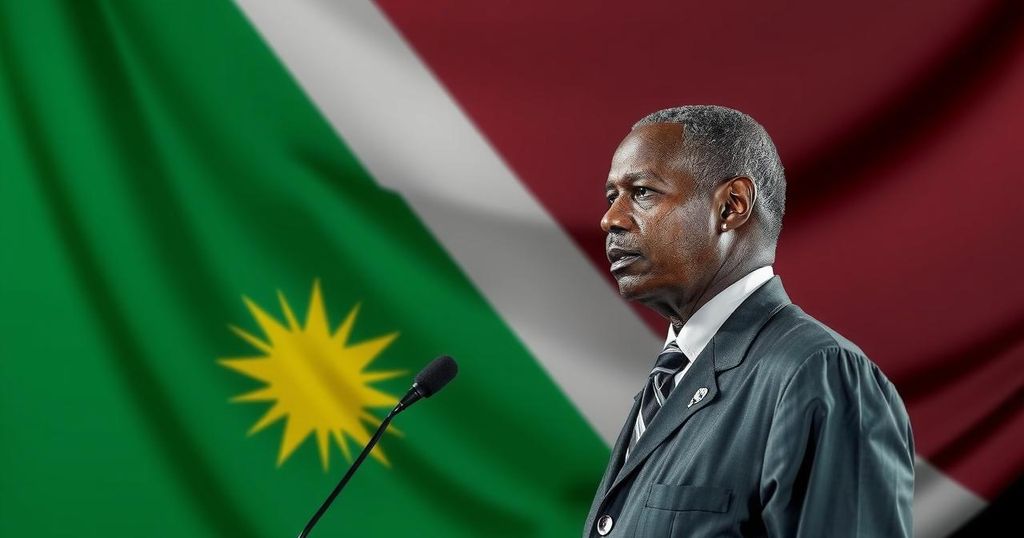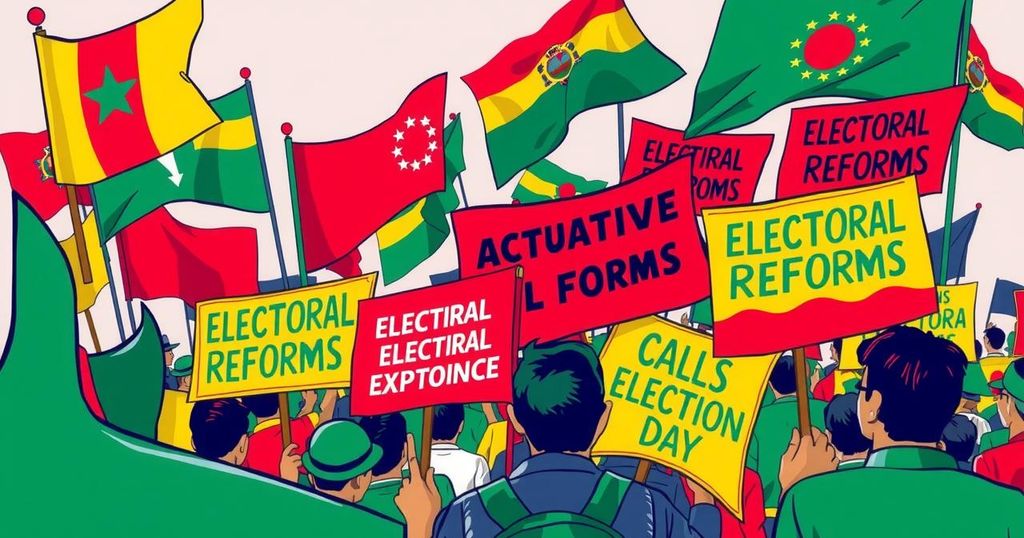Botswana’s Ruling Party Concedes Defeat After 58 Years in Power
In a landmark election, Botswana’s President Mokgweetsi Masisi conceded defeat, ending the ruling Botswana Democratic Party’s 58-year reign. The opposition coalition, UDC, secured a major victory, led by Duma Boko, amidst rising economic grievances, particularly among youth, attributed to the downturn in the diamond industry. The results have sparked celebrations among opposition supporters, indicating a pivotal change in Botswana’s political landscape.
Botswana has experienced a significant political shift as President Mokgweetsi Masisi acknowledged defeat in the recent elections, marking the end of a 58-year tenure for the Botswana Democratic Party (BDP). Preliminary results indicated a resounding victory for the opposition coalition, the Umbrella for Democratic Change (UDC), led by Duma Boko. With over half of the constituencies reporting, the UDC captured 26 parliamentary seats, whereas the BDP managed to secure only three. The BDP’s loss can be attributed to rising socio-economic challenges, particularly among the youth, compounded by a downturn in the global diamond market that resulted in increased unemployment, reaching 28%. The president’s public acceptance of the electoral outcome demonstrated respect for the electorate’s choice, as he stated his intention to support the incoming administration. The news has prompted celebrations among opposition supporters, symbolizing a pivotal moment in Botswana’s democratic journey, and it serves as a cautionary tale for long-standing ruling parties across the region.
Botswana has been stable since gaining independence from Britain in 1966, largely due to its diamond revenue, which has been vital for the country’s economy. However, recent global economic fluctuations, particularly affecting the diamond sector, have sparked discontent particularly among younger generations. The BDP’s failure to address these mounting grievances has culminated in a loss of parliamentary seats and a significant shift in power to the UDC, reflecting a broader trend of declining support for historically dominant political parties in southern Africa.
The recent electoral defeat of Botswana’s ruling party exhibits the growing discontent among the populace as they grapple with socio-economic hardships, particularly young individuals feeling the brunt of economic stagnation. This outcome not only signals the end of the BDP’s prolonged rule but also serves as a cautionary note for other long-standing political entities in the region, underlining the importance of addressing public concerns in order to maintain political relevance.
Original Source: www.cnn.com




Post Comment